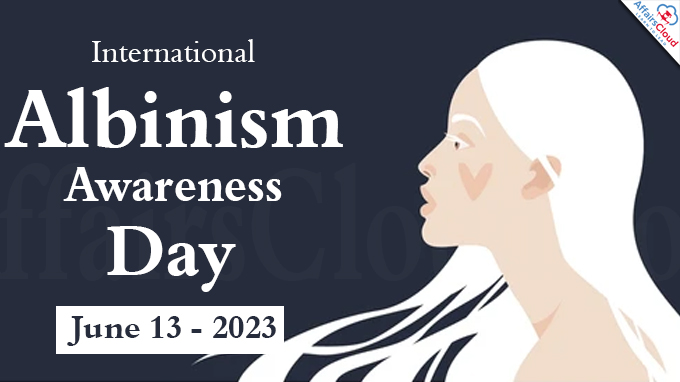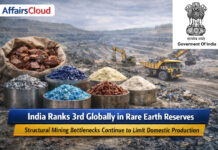 The United Nations (UN) International Albinism Awareness Day is annually observed on 13th June across the world to raise awareness about Albinism and to highlight the importance of the human rights of the people with albinism worldwide.
The United Nations (UN) International Albinism Awareness Day is annually observed on 13th June across the world to raise awareness about Albinism and to highlight the importance of the human rights of the people with albinism worldwide.
The theme of International Albinism Awareness Day 2023 is “Inclusion is Strength“, which builds on the theme of 2022 “United in making our voice heard.”
Objective: The 2023 theme aims to ensure the inclusion of the voices of persons with albinism in all sectors of life and highlight the importance of inclusion of a diversity of groups from both within and outside the albinism community.
Background:
On 18th December 2014, the United Nations General Assembly (UNGA) adopted the resolution A/RES/69/170 and proclaimed the 13th June of every year as the International Albinism Awareness Day.
- This follows the recommendations by the Human Rights Council Resolution A/HRC/RES/26/10 in July 2014 to proclaim 13th June of every year as International Albinism Awareness Day.
- The first-ever International Albinism Awareness Day was observed on 13th June 2015.
About Albinism:
i. Albinism is a rare genetic condition caused by mutations of certain genes that affect the amount of melanin produced by the human body, which controls the pigmentation (colour) of skin, eyes and hair.
- People with albinism have extremely pale skin, eyes and hair. They are at an increased risk of vision, skin and social issues.
ii. The condition of Albinism is found in both sexes regardless of ethnicity and in all countries of the world.
iii. The condition causes vulnerability to the sun and bright light and as a result, almost all people with albinism are visually impaired and highly vulnerable to developing skin cancer.
People with albinism and Human Rights:
People with albinism face various forms of discrimination all over the world. Their physical appearances are often the object of erroneous beliefs and myths influenced by superstition, which foster their marginalisation and social exclusion.
Prevention of attack:
i. In 2013, the UNs Human Rights Council adopted a resolution (A/HRC/RES/23/13) calling for the prevention of attacks and discrimination against persons with albinism.
ii. In 2015, the Human Rights Council adopted a resolution A/HRC/RES/28/6 without a vote to establish the mandate of an Independent Expert on the enjoyment of human rights by persons with albinism for a period of three years.
- It was extended on 23 March 2021 through resolution A/HRC/RES/46/12.
iii. In 2015, Ms. Ikponwosa Ero of Nigeria was appointed as the first Independent Expert on the enjoyment of human rights by persons with albinism by the Human Rights Council.
iv. In 2021, she was succeeded by Ms. Muluka-Anne Miti-Drummond of Zambia.
About United Nations (UN):
Founded in– 1945
Secretary-General– António Guterres
Headquarters– New York, the United States of America (USA)
Member States– 193 member states (As of June 8 2023)




